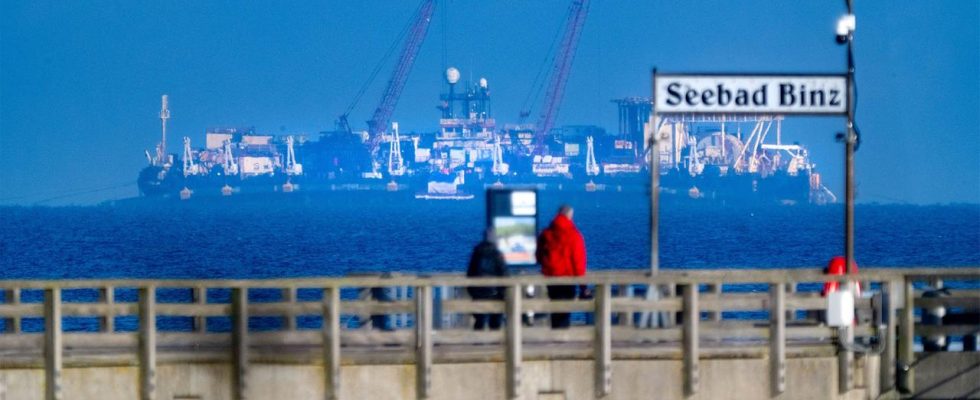From the perspective of the DIW research institute, the plans for the expansion of LNG infrastructure are excessive. The experts advise not to pursue this further. It is time to repeal the gas emergency plan.
Two years after the Russian attack on Ukraine and the start of the energy crisis, the German Institute for Economic Research (DIW) believes that the situation on the gas market has eased. A gas shortage that would justify the accelerated expansion of liquefied natural gas infrastructure since the summer of 2022 never occurred, the experts write in a current study.
The planned expansion of LNG import capacities is no longer necessary to this extent. “The oversized LNG infrastructure expansion is not necessary to avoid a potential gas shortage and should therefore not be pursued further,” is the assessment of the experts. The Funke media group had previously reported.
There was therefore never a risk of a gas shortage for the winter of 2023/24. The current gas storage levels in Germany and the EU were sufficient to provide sufficient supplies to both Germany and Eastern Europe, even in the potentially very cold months of February and March 2024.
Declining Natural gas consumption expected
According to DIW, the three existing floating LNG terminals in Germany were only half full. All terminals in Germany, Poland, Belgium, the Netherlands and Italy together are around two-thirds full. Even with high demand due to extreme cold, enough gas could have been obtained through higher utilization of the terminals and from the reserves in the storage facilities.
In view of the expected decline in natural gas consumption in Germany and the stabilization of supply, the DIW believes it is appropriate to put the projects and locations envisaged in the LNG Acceleration Act to the test. The federal government should refrain from developing land-based LNG terminals and reassess the floating regasification plants.
“Two to three temporary terminals could be used to ensure security of supply, said DIW expert Claudia Kemfert to the Funke media group. “But permanent terminals are now being built. We think this is completely oversized, and other analyzes confirm this.”
“Cancel gas emergency plan”
With regard to the controversial planned Mukran location on Rügen, the experts write that there are no structural network bottlenecks that justify a terminal on Rügen. The development of import infrastructure there is neither necessary nor cost-effective.
In view of the supply situation, Kemfert is calling for an end to the alert level of the gas emergency plan, which the federal government announced in the summer of 2022. “There is no gas shortage and it is not foreseeable,” she told the Funke newspapers. “It’s time to repeal the gas emergency plan.”
“Two to three temporary terminals could be used to ensure security of supply, said Kemfert. “But permanent terminals are now being built. We think this is completely oversized, and other analyzes confirm this.”
Biden is also stopping LNG expansion
At the end of January, US President Joe Biden ordered construction projects for new LNG terminals in the USA to be stopped for the time being. As justification, however, he referred to climate change and the possible effects of fossil fuels on the environment. The LNG delivered to Germany from the USA is largely obtained using the controversial fracking method.
Germany’s currently good gas supply situation suggests that the US moratorium is not expected to have any serious short-term effects on the German gas market, according to the Federal Association of the Energy and Water Industry (BDEW).
According to BDEW information, an average of 6.4 percent of the gas consumed in Germany in 2023 came from LNG deliveries via the new domestic terminals. The USA supplied around 80 percent of this. The majority of German gas consumption last year was covered by Norwegian pipeline gas with a share of 36 percent.

